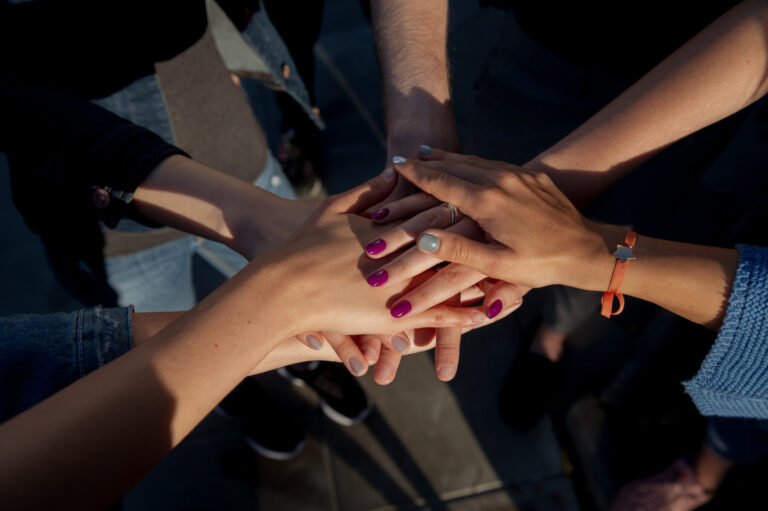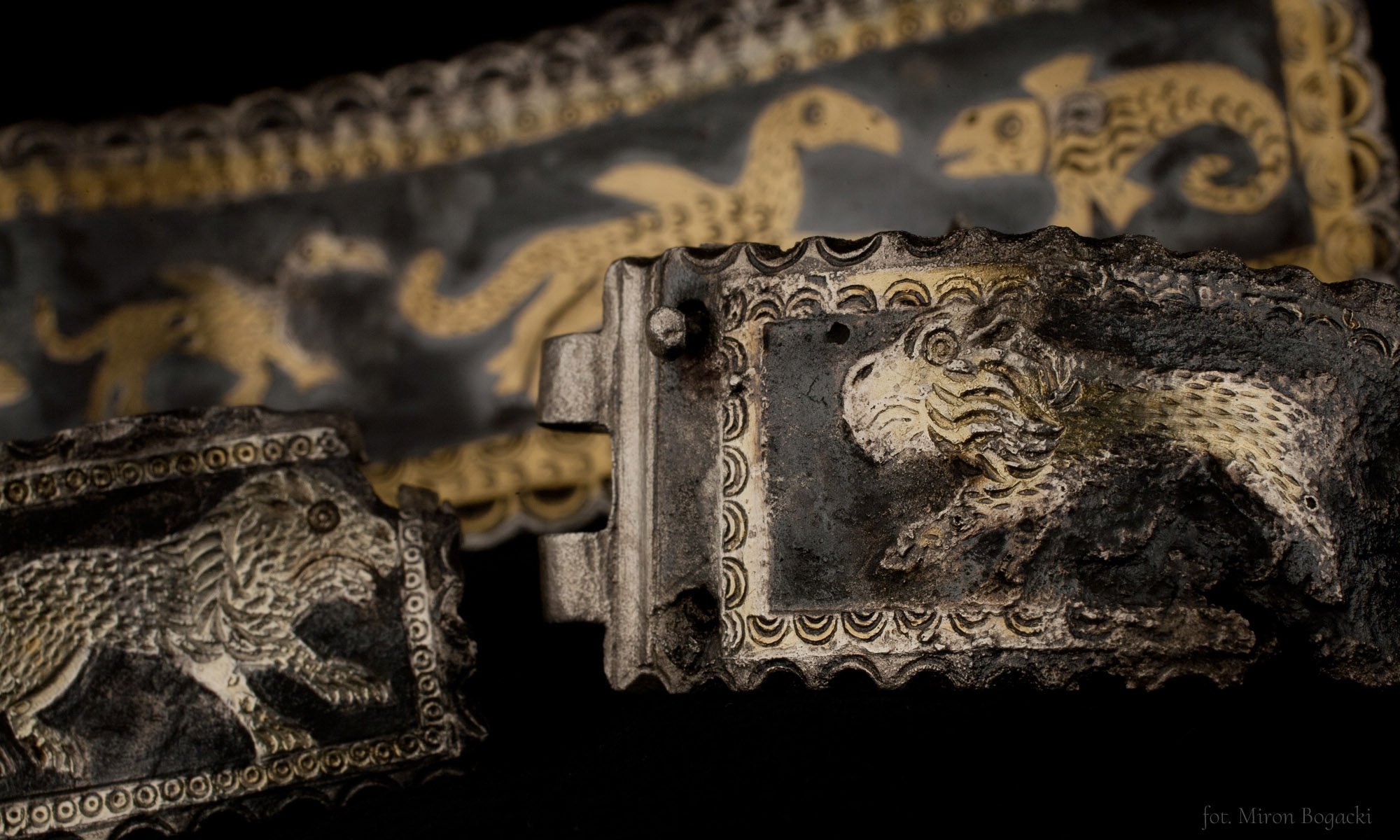The University of Warsaw offers support to anyone who has experienced discrimination, sexual harassment, mobbing, or any form of unequal treatment and violation of student rights.

It is the duty of every University of Warsaw employee to uphold the principles of equality, ensuring that all students and staff feel safe within the walls of our Faculty and confident that their rights are fully respected.
First steps
If you are a student or an employee and you experience unfair or degrading treatment—or notice someone else being treated inappropriately—you can first contact the Faculty Representative for Equality.
Students may also reach out to the Student Council, the Vice-Dean for Student Affairs, or the 1st-Year Students’ Tutor. These individuals can listen to your concerns and help direct you to the appropriate institution for professional support.
If you are in crisis and need immediate psychological help:
UNIVERSITY OF WARSAW HELPLINE – 22 552 44 24
UW PSYCHOLOGICAL SUPPORT CENTRE HELPLINE – +48 694 711 731
You can request psychological and psychiatric support.
IN-PERSON SUPPORT ARE LOCATED AT:
University Psychological Support Centre (CPP UW)
Psychologists, psychotherapists, crisis intervention specialists and psychiatrists provide free psychological support. More information: https://cpp.uw.edu.pl
SUPPORT OUTSIDE THE UNIVERSITY – WARSAW CRISIS INTERVENTION CENTRE:
Crisis Intervention Department (Ursynów)
• ul. 6 Sierpnia 1/5
• Tel: 514 202 619 – open 24/7
Crisis Intervention Point (City Centre – Śródmieście)
• Plac gen. J.H. Dąbrowskiego 7
• Tel: 535 430 902 – open Monday to Friday, 8:00 AM – 8:00 PM
24/7 Helpline for people in suicidal crisis – 511 200 200
IN CASE OF A SAFETY THREAT
UNIVERSITY OF WARSAW EMERGENCY PHONE – +48 22 55 22 112
This is the emergency number for the University of Warsaw. Call in any situation that poses a threat to members of the university community or its guests.
• Available 24/7
• https://en.uw.edu.pl/safety-at-the-uw/
• alarm@uw.edu.pl
More information is available at the UW Psychological and Counselling Services Centre website, as well as from the individuals and institutions listed below.
Representative for Equality – Faculty of Archaeology
The Representative for Equality is the first point of contact at our Faculty for issues related to unequal treatment, discrimination, sexual harassment, and other forms of inappropriate or undesirable behavior.
This person also provides information about available training, equality-related courses, and anti-discrimination procedures.
The Representative works in cooperation with the Academic Ombudsman (for student and staff matters), the Equality Team, and the Team of Coordinators for Counteracting Unequal Treatment, Discrimination, Mobbing, and Other Undesirable Behavior.
The current Representative for Equality at the Faculty of Archaeology is Dr. hab. Katarzyna Pyżewicz.
Conatct: k.pyzewicz@uw.edu.pl
Council of the Students’ Self-Government and Tutor – Faculty of Archeology (for students)
You can reach out to the WA Student Council and the WA Tutor for advice regarding problems or situations that may arise within the Faculty, at the University, or outside the academic setting. The Tutor focuses primarily on supporting individuals on the autism spectrum.
Contact: https://www.archeologia.uw.edu.pl/en/students-council/
Tutor of the Faculty of Archaeology, University of Warsaw
1st-year tutor (for students)
The Tutor is a person who supports new students in getting acquainted with both the University and the Faculty. They are available to answer any questions you may have about your first steps in archaeology.
You can also reach out to the Tutor if you’re facing any difficulties and feel that this is the right person to talk to. The Tutor will guide you on what steps to take and where to seek further help.
The 1st-year Tutor for our students is Dr. Julia Chyla.
Contact: j.chyla@uw.edu.pl
Vice-Dean for Student Affairs (for students)
Although the primary responsibility of the Vice-Dean for Student Affairs is overseeing the organization of education at the Faculty, this is also a person students can turn to with any questions or complaints concerning violations of equality, tolerance, or student rights.
Each case can be reported via email or by directly contacting the Vice-Dean.
Contact: Dr. Elżbieta Jaskulska wa.student@uw.edu.pl, hDetails on how to contact the Vice-Dean directly can be found here
Ombudsman
The Academic Ombudsman is a person whom students, academic staff, and administrative employees can contact for assistance with matters concerning the University and its community.
You can reach out to the Ombudsman regarding issues such as mobbing, discrimination, or other forms of unfair treatment. All cases are handled with confidentiality—both the information shared and the identity of the person reporting are protected. The Ombudsman operates with independence, neutrality, and impartiality.
The Ombudsman’s role is to support students and staff in resolving conflicts and to ensure that all members of the academic community are treated fairly and justly.
Cases can be reported by individuals—employees, doctoral candidates, and students—as well as by organizational units of the University of Warsaw and student or doctoral self-government bodies.
Details on the reporting procedure can be found here
Contact: http://ombudsman.uw.edu.pl/en/contact/
Equality Team
Members of the Equality Team develop and implement anti-discrimination policies and initiatives promoting equal treatment and diversity. They also conduct research in the field of equality, coordinate and support educational activities related to equality, and oversee awareness-raising and promotional efforts around equality and diversity issues.
Anna Grędzińska
Equal opportunities chief specialist
Coordinator for counteracting unequal treatment, discrimination, mobbing and other undesirable behaviour
Dr. hab. Julia Kubisa, prof. UW
Chief specialist on equality research and education
Zuzanna Kaszuba
Equality classes specialist
Zofia Dolecka
Equal opportunities officer
Kaja Kulesza
Equality data specialist
Contact: https://rownowazni.uw.edu.pl/en/contact/
We encourage you to visit the UW Equality Website
If you have experienced discrimination, unequal treatment, or any other undesirable behavior, you can report the incident directly to a member of the Equality Team, the Academic Ombudsman, or the Faculty Representative for Equality.
Student Ombudsman (for students)
The Student Ombudsman is responsible for all activities related to student rights, raising awareness among students about their rights, helping solve problems, and representing students’ interests.
The Student Ombudsman provides information on student rights, advises on the most beneficial procedures from the student’s perspective, and intervenes with the appropriate University authorities when necessary.
Student Ombudsman – Zuzanna Bastek
The Psychological and Counselling Services Centre (CPP UW)
The Psychological and Counselling Services Centre is a university facility that offers free support to students and employees of the University of Warsaw for any personal, emotional, or psychological concerns they may be experiencing. The Centre provides individual consultations, intervention-focused meetings, short-term individual psychotherapy, time-limited group psychotherapy, as well as the opportunity to participate in workshops and psychoeducational programs.
Contact: https://cpp.uw.edu.pl/en/contact-us/
Office for Persons with Disabilities (BON)
The Office for Persons with Disabilities is an institution dedicated to providing support and assistance to individuals with disabilities, including both students pursuing their studies and university employees.
Anyone who, due to their disability, experiences unequal treatment or encounters barriers in their studies or other essential activities required for functioning effectively at the University can contact the Office for help.
Contact: https://bon.uw.edu.pl/contact/
Medical care and health insurance
Students and employees of the University of Warsaw can access healthcare services provided by the CenterMed Academic Clinic free of charge.
For more information about medical care and the health insurance system in Poland, please visit: https://welcome.uw.edu.pl/healthcare/
Academic Legal Advice Centre (for students)
The Academic Legal Advice Centre is an institution that provides free legal assistance to students on matters related to student affairs, as well as civil law, family and guardianship law, labor law, administrative law, and more.
The counseling services are generally provided by senior students, graduates, and PhD candidates from the Faculty of Law and Administration at the University of Warsaw, who work with the support of experienced advisors in their respective fields.
Contact: https://akademickaporadniaprawna.pl/kontakt/
Center for Dispute and Conflict Resolution – Faculty of Law and Administration at the University of Warsaw
The Center for Dispute and Conflict Resolution is an organization whose primary purpose is to promote amicable conflict resolution. The Center mediates cases referred by the courts, as well as cases where the parties involved seek mediation independently.
For more information, visit the Center’s website
Guides, training, campaigns
Guide to the prevention of sexual harassment at the University of Warsaw
Anti-discrimination Guidebook for students and employees of the University of Warsaw
Recommendations on non-discriminatory language at the University of Warsaw (2021) available in Polish
Guides for transgender people in academia created by the scholar society Queer UW (available in Polish):
- Handbook “Trans* – inclusive University. Creating a student-friendly university trans* people. A guide for universities”
- Handbook “Trans * – inclusive University. Creating a student-friendly university for trans* people. A guide for administration”
- Handbook “Trans * – inclusive University. Creating a student-friendly university for trans* people. A guide for trans* students”
Social Campaigns at the University of Warsaw
“We Are All Equal“
This campaign is addressed to the entire University of Warsaw community. Its goal is to emphasize that there is no place for discrimination at UW and that those who experience it will find support within the university.
“Mind Your Words“
This campaign promotes dialogue and stands against hate speech. Its purpose is to highlight that hate and hate speech have no place at the University of Warsaw, and that individuals who have experienced or witnessed such behavior will find support at the university.
Te initiative, entitled “Your mind – your strength,” is addressed at the entire academic community. It highlights the importance of caring for mental health, building awareness of prevention, and the belief that each of us can influence our well-being, emotions, and inner balance.
“Understanding Equality” Course
The “Understanding Equality” course is available for University of Warsaw employees and students in both Polish and English on the Kampus e-learning platform.

